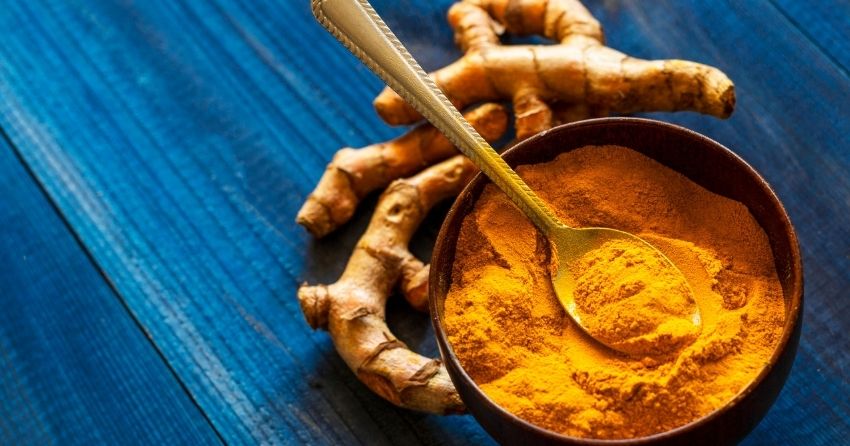Curcumin Supports Healthy Heart Aging Through Several Pathways

There are several hallmarks of an aging heart that revolve around failing processes related to cell stress. When the cell’s power generators (mitochondria) or recycling processes (autophagy) crumble, there’s an increase in cell stress and a greater likelihood of faster aging. So, finding compounds that can intervene at the level of cell stress or even earlier at the mitochondria and autophagy levels have the potential to support healthy heart aging.
Research from Shanghai Jiao Tong University School of Medicine now shows that curcumin — a compound from the turmeric root with antioxidant and autophagy-promoting effects — plays a supportive role in heart aging. In a mouse model of heart aging, curcumin played a preventative role for heart cells against cell senescence, which is a process where cells stop growing and dividing and is highly linked to aging. These results suggest that curcumin may be an effective compound for supporting healthy heart aging.
What Processes Drive Heart Aging?
While the major contractile cells of the heart (cardiomyocytes) cannot replicate, they are very active, requiring huge amounts of energy production from mitochondria and renewal of cell parts via autophagy. So, these cells that are critical for the heart’s pumping function need to be able to keep cell stress in check to maintain healthy mitochondria and efficient autophagy.
Perhaps it is not surprising then that one of the hallmarks of cardiac aging is mitochondrial dysfunction, which not only leads to insufficient contractile ability but also can cause excessive cell stress. This stress, in turn, induces damage to cell structures, including mitochondria, that leads to an avalanche of cell stress by inhibiting cell components' renewal. So, interventions that support mitochondrial health, modulate autophagy, and fight off cell stress (antioxidants) have the potential to support healthy heart aging.
Can Curcumin Promote Healthy Heart Aging?
There’s a bit of hype around the potential for curcumin to support healthy aging, as curcumin supplementation has extended the lifespan of fruit flies, nematodes, and mice. Although curcumin has been studied extensively in several aging models, the turmeric-derived compound’s effect on cardiac aging and the underlying mechanism of action remains unclear. Interestingly, some research suggests the role of curcumin in supporting healthy heart aging, such as an article demonstrating that curcumin promotes blood vessel formation in aging rat hearts.
That’s why senior author Lei Yang and colleagues aimed to explore the effect of curcumin on cardiac aging and its possible mechanism of action on the contractile cardiomyocytes. The Shanghai Jiao Tong University School of Medicine researchers found that curcumin supports healthy aging by promoting autophagy and reducing stress during stress-induced cardiac aging. These effects were linked to attenuated cardiomyocyte senescence, with the contractile heart cells replicating at rates higher than those that went untreated.

Optimizing Curcumin’s Effects in the Aging Heart
The researchers think curcumin supports healthy heart aging through a pathway called SIRT1/AMPK/mTOR pathway. Interestingly, to function, SIRT1 requires the vital molecule NAD+. So, in order for curcumin to maximize its effects on the SIRT1/AMPK/mTOR pathway, it is likely that a fully activated form of SIRT1 is needed.
However, the levels of NAD+ drop with again. Because of this, there’s been lots of studies on finding ways to boost NAD+ levels. This research has revealed that there are several compounds that have been shown to increase levels of NAD+, including the precursor nicotinamide mononucleotide (NMN). Since NMN has been shown to replete levels of NAD+ in the hearts of mice, it would be interesting to see if there is a synergistic effect between curcumin and NMN in supporting healthy heart aging.
What About Curcumin in the Human Heart?
There’s been a little bit of research on the effects of curcumin on the human heart, including one study where healthy middle-aged and older adults supplemented with curcumin for 12 weeks. Here, curcumin had notable effects on the health of blood vessel structure and function. However, similar to the rodent studies, the effects of curcumin on human cardiomyocyte aging were unreported.
There is a clinical study called “Curcumin and Function in Older Adults (SPICE)” that has finished; however the study’s results are yet to be published. While there will not be direct measurements of heart cell aging, there could be some indirect data on the effect of curcumin on the cardiovascular system as measured by physical performance. However, this data is far less informative than more direct measures of heart aging, including the structure and function of cardiomyocytes and the integrity of the mitochondria and autophagy in these essential contractile cells.
References:
Yang L, Shi J, Wang X, Zhang R. Curcumin Alleviates D-Galactose-Induced Cardiomyocyte Senescence by Promoting Autophagy via the SIRT1/AMPK/mTOR Pathway. Evid Based Complement Alternat Med. 2022;2022:2990843. Published 2022 Jul 16. doi:10.1155/2022/2990843





